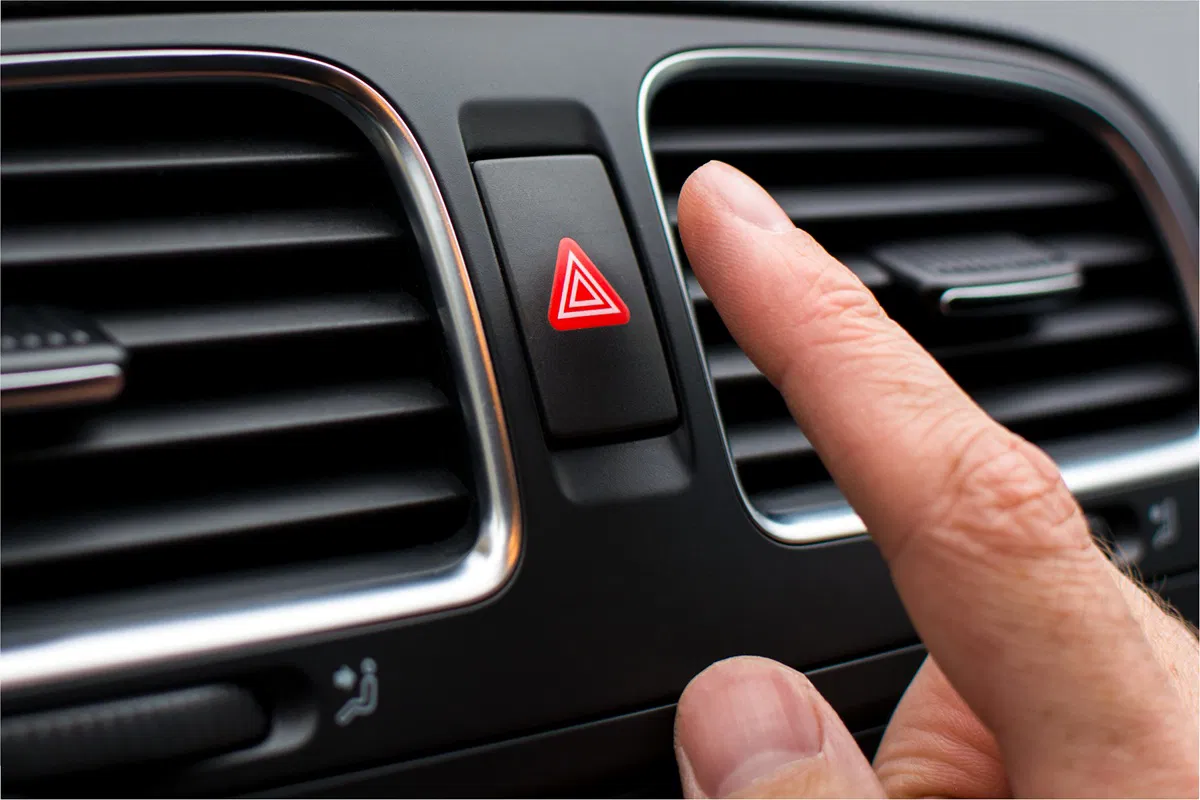By Farah Mokrani
Copyright euroweeklynews

It’s one of those little things you do behind the wheel without giving it a second thought. You’re cruising along a motorway, the traffic suddenly slows to a crawl, and your instinct kicks in: flick on the hazard lights to warn the car behind.
Sounds sensible, right? Unfortunately, the DGT (Dirección General de Tráfico) doesn’t agree – and this very common habit could now leave you with a €200 fine.
A surprise for Spanish drivers
The news has caught plenty of motorists off guard. Many admit they’ve been doing it for years, thinking they were being extra cautious. One driver, Francesc Lamela Piqueras, even confessed on social media: “I didn’t know this was a fine. I used to do it all the time, thinking it was the safest thing to do.” He’s far from alone – for a lot of seasoned drivers, this feels like a hidden rule pulled straight out of nowhere.
But the truth is, it’s not new. The ban is written into the Reglamento General de Circulación, Spain’s driving rulebook. According to article 109, the correct way to warn others of a sudden slowdown is by pressing the brake pedal repeatedly so that your rear lights flash, or – in a slightly more old-fashioned move – by sticking your arm out the window and moving it up and down quickly.
Hazard lights, says the DGT, are strictly reserved for real emergencies, not routine traffic jams.
When hazard lights are allowed
So does that mean you can never touch that red triangle button again? Not exactly. There are a handful of scenarios where hazards are not only allowed but encouraged. If you break down on the hard shoulder, if your car is immobilised, or if you’re driving through heavy fog, torrential rain or even smoke that limits visibility – then yes, hazard lights are legal.
But using them simply to flag a traffic jam ahead? That’s what the DGT wants to stop. The argument is that drivers should know what brake lights mean – and hazards, if misused, only create confusion.
Whether motorists buy into that reasoning or not, the warning is clear: carry on with the habit, and you could be €200 poorer.
The bigger crackdown on road behaviour
This isn’t happening in isolation. The DGT has been quietly tightening up its surveillance of drivers, rolling out more cameras, tougher penalties and even new signals designed to catch bad habits.
One of the latest is the S-991d STOP radar system, already being tested in certain parts of Spain. It’s designed to monitor whether cars are actually coming to a complete halt at STOP signs. The new signs, linked to electronic eyes, can tell instantly if you’ve slowed down but failed to stop fully – something most drivers are guilty of at least once.
Officials say the idea isn’t about catching people out, but about making roads safer for everyone, especially in busy urban zones where pedestrians, cyclists and other cars cross paths. Still, for many motorists, it feels like yet another reminder that the smallest mistakes no longer go unnoticed.
What this means for expats and tourists
For expats living in Spain – and the millions of holidaymakers who hire a car for their summer break – this is one of those rules you’ll want to keep in mind. It’s easy to assume that what feels “common sense” on the road must be legal. But as the DGT keeps proving, Spanish traffic law has its quirks.
Hazard lights for jams might feel instinctive if you’ve driven elsewhere in Europe, but here in Spain, it’s a costly error. And when fines can arrive via radar or camera long after your trip is over, ignorance really isn’t bliss.
The message from the DGT couldn’t be clearer: know the rules, even the ones that seem small or counterintuitive. A habit picked up over years might seem harmless, but in Spain it could be a sanction waiting to happen.
So next time the motorway ahead grinds to a halt, resist the urge to reach for the hazard button. Tap your brake pedal instead, keep your distance, and save yourself €200. Because as every driver in Spain is learning the hard way – when it comes to road safety, the DGT means business.
Stay tuned with Euro Weekly News for more news from Spain



